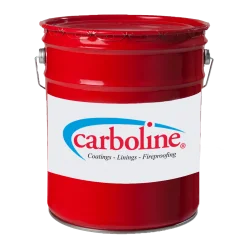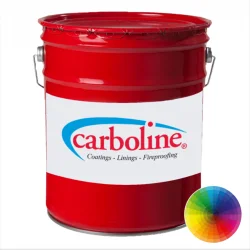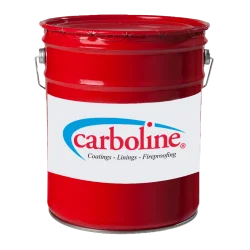Marine primers and undercoats can protect submerged areas of vessels including newbuilds, ships, yachts, boats, narrowboats, canal boats along with offshore structures, providing resistance against:
- Salt water
- Temperature changes
- Reinforcement against impact damage and abrasion
- Rust, corrosion and substrate oxidisation
- Pitting and bacterial corrosion
- Colour loss
Mild steel, for example, corrodes easily in saltwater, and unless it is adequately protected and reinforced with a primer or undercoat along with a topcoat, it can rapidly lose its strength – which may result in structural failure.
Corrosion is caused by the spontaneous reaction between a material and its environment – salt or freshwater submersion, for example, or docklands and related areas of heavy wave impact – which results in the degradation of the material. In metals, this can result in the deterioration of the mechanical properties of the metal.
Marine primers and undercoats are a core part of a full system installation to tackle, treat and prevent corrosive damage to a structure from fouling. They can greatly improve the lifespan of a structure, the mechanical integrity of a surface material, and improve colour retention on aesthetically proud areas.
Marine fouling is the term generally used to describe the corrosive settlement and growth of marine plants and animals on submerged structures. There are specialist anti-fouling coatings available which target this specific form of surface and substrate damage. Offshore structures around the UK coastline typically include:
- Ships’ hulls
- Piers
- Piling
- Oil rigs
- Offshore wind turbines
Along with the internals of pipework used to carry water as a coolant for industrial power plants.
On ships hulls, fouling type, extent and severity depends upon many factors - water salinity, light, temperature, pollution and nutrient availability. The severity of fouling tends to be a seasonal phenomenon governed by geographical location.
Corrosion, and the rate at which corrosion occurs in seawater for example is dependent upon many factors, including oxygen concentration, pH (acidity/alkalinity), water temperature and the presence of dissolved salts such as chloride, sulphate, and sulphites.
Corrosion attacks also occur in oil tanks, ballast tanks and cargo pipework, all of which can be protected with a basecoat or primer from International, Jotun, Sherwin-Williams, or Teamac, as part of their full system ranges for metal.
Corrosion Prevention
Proper surface preparation prior to the application of a primer or undercoat is essential for the success of any marine coating system. The importance of removing oil, grease, old coatings and surface contaminants (such as millscale and rust on steel, and zinc salts on zinc containing primers or galvanised surfaces) cannot be over emphasised.
The performance of any primer or paint coating is directly dependent upon the correct and thorough preparation of the surface prior to coating. The most expensive and technologically advanced coating system will fail if the surface preparation is incorrect or incomplete.
The main objective of surface preparation is to ensure that all such contamination is removed to reduce the possibility of initiating corrosion and to create a surface profile that allows satisfactory adhesion of the coating to be applied.
Marine Primers and Subsequent Coatings
The effectiveness of all coatings applied – including primers and undercoats - in preventing corrosion depends upon many factors, for example, coating type, end use and operating environment.
Coatings in service - cargo hold coatings, deck coatings and hull coatings - will be subjected to mechanical damage. Corrosion protection can therefore best be achieved by using a primer or undercoat that strengthens the mechanics of a full marine coating system.



